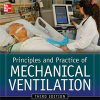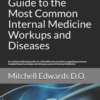Hypothermia and Health-related Quality of Life Among Pediatric Cardiac Arrest Survivors
journals.lww.comOut-of-hospital or in-hospital cardiac arrest treated with therapeutic hypothermia was associated with higher health-related quality of life scores despite having association with higher lactate and lower pH after resuscitation.
We failed to identify an association between use of therapeutic hypothermia and lower mortality.
We studied 239 children, 112 (47%) in the therapeutic hypothermia group.
The median (interquartile range) of lowest temperature reached in the 48 hours post cardiac arrest in the therapeutic hypothermia group was 33°C compared with 35.4°C in the no therapeutic hypothermia group.
At follow-up, 152 (64%) were alive and health-related quality of life assessments were completed in 128.
Use of therapeutic hypothermia was associated with higher lactate and lower pH at baseline.
After regression adjustment, therapeutic hypothermia (as opposed to no therapeutic hypothermia) was associated with higher physical and psychosocial scores.

















